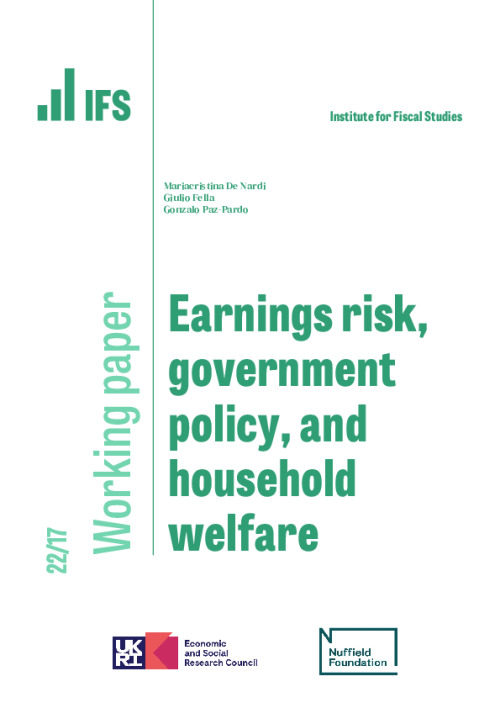The desirability, efficacy, and cost-effectiveness of government welfare policies depend crucially on the income risk that households face and the actions that they can take to reduce consumption fluctuations, for instance by adjusting their saving and labor supply. Shocks to labour earnings are a key driver of income risk. A recent literature has documented that the dynamics of labour earnings are much richer that typically assumed in the class of models used to evaluate the desirability of tax and welfare policies. This raises the question of how taking into account this richer dynamics affects the evaluation of such policies.
This report summarizes the findings of a two-year research project on “Earnings Risk, Government Policy, and Household Welfare,” funded by a grant from the Nuffield Foundation. The project documents that the dynamics of male and female labour earnings in the UK is substantially richer than typically assumed and shows that accounting for this richer dynamics is important for the evaluation of welfare benefit reforms.












